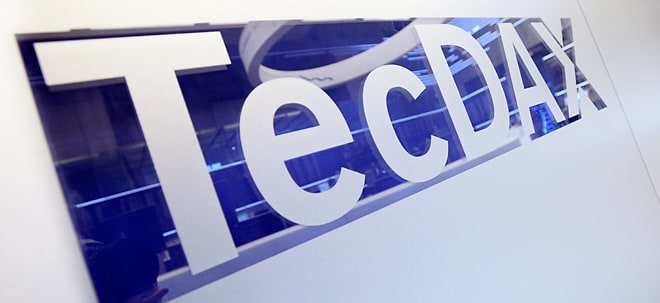JPMorgan, Credit Suisse Settle SEC Mortgage Inquiries JPMorgan Chase & Co. (JPM) and Credit Suisse Group AG (CSGN) agreed to pay almost $417 million to settle U.S. regulatory claims they misled investors while selling billions of dollars of investments linked to home loans. JPMorgan resolved claims that it made misstatements about delinquency data for loans packaged into securities and that Bear Stearns Cos., which the bank acquired in 2008, didn’t tell mortgage investors it kept reimbursements on soured loans, the Securities and Exchange Commission said in a statement. Credit Suisse was also faulted for disclosures on reimbursements. For JPMorgan Chief Executive Officer Jamie Dimon, whose firm is forfeiting $296.9 million in the SEC deal, the claims add to a growing list of regulatory costs from the housing bubble, a botched bet on credit derivatives and an energy- trading probe. Since mid-2011, the bank also has been sued by state and federal watchdogs over sales of mortgage-backed securities to Fannie Mae and Freddie Mac and loans sold to investors by Bear Stearns. “Misrepresentations in connection with the creation and sale of mortgage securities contributed greatly to the tremendous losses suffered by investors once the U.S. housing market collapsed,” the SEC’s enforcement chief, Robert Khuzami, said in yesterday’s statement. One SEC claim against New York-based JPMorgan focuses on a $1.8 billion offering of residential mortgage-backed securities, known as RMBS, as the credit crisis loomed in December 2006. The bank told investors only four loans were delinquent by 30 to 59 days, when in reality, the firm had information showing more than 620 loans fit that description, the SEC said. Bear StearnsAnother claim focuses on 156 mortgage-backed securities transactions by Bear Stearns from 2005 to 2007. Lenders were supposed to buy back home loans that defaulted early or were defective. Bear Stearns instead negotiated bulk settlements with the lenders and then kept payments for itself without telling investors, the SEC said. The practice had been reviewed by attorneys for Bear Stearns and top executives, then continued after the firm’s takeover by JPMorgan, Khuzami said. Dimon, 56, one of the industry’s most forceful advocates, lost stature this year as his bank, the nation’s biggest by assets, juggles investigations and more than $6.2 billion in trading losses on bets by the firm’s chief investment office. Dimon has said he did the U.S. a favor by buying Bear Stearns and that he might not do such a deal again after costs were boosted by legal and regulatory claims against the business. Acquiring a company traditionally means taking on its liabilities too, Khuzami told reporters. Ill-Gotten“Here it certainly would not be a right result if JPMorgan was able to retain the ill-gotten gains from this illegal scheme,” he said. Still, the agency adjusted the penalties because much of the abuse took place before the deal, he said. JPMorgan and Credit Suisse didn’t admit or deny wrongdoing in settling. The firms agreed to forfeit gains from the misconduct and pay fines. Khuzami said he doesn’t expect to bring claims against individuals in either case. That might change if the investigators uncover new evidence, he said. “The SEC’s complaint makes allegations under the negligence-based provisions of the federal securities laws and does not include charges of intentional misconduct,” JPMorgan said in a statement. Credit Suisse, led by CEO Brady Dougan, agreed to pay $120 million. It too had engaged in bulk settlements with originators from 2005 to 2010, kept proceeds and failed to tell investors, according to the SEC. The agency also faulted the bank, Switzerland’s second largest, for failing to make good on obligations to repurchase certain loans that defaulted. ‘Highest Standards’“The bulk settlement practice involved a number of acts that operated as a fraud or deceit on RMBS investors,” the SEC said its complaint. “Credit Suisse is committed to the highest standards of integrity and regulatory compliance in all its businesses,” the Zurich-based company said in a separate statement. Dougan, 53, ran Credit Suisse’s investment banking division until 2007, when the bank’s board appointed him CEO. He was replaced by Paul Calello, who died in November 2010. Eric Varvel is the current chief of the unit. The SEC said the settlements were reached in coordination with a state-federal task force set up by President Barack Obama earlier this year to root out misconduct involving mortgage- backed securities. Advanced TalksJPMorgan said last year it already was in advanced talks to settle a broad SEC inquiry into how firms packaged and sold mortgage-backed securities as the housing market unraveled. In February, the firm said it was warned by SEC employees that they may bring civil claims linked to two inquiries. This month, the bank said it reached an “agreement in principal” to resolve SEC complaints. The regulator is seeking to wrap up probes into how banks bundled and pitched investments tied to risky home loans, after being accused by lawmakers and investors of failing to punish Wall Street for misconduct that may have fueled the housing bubble and financial crisis. The agency has targeted companies at various stages of the loan-packaging process -- from originators such as Countrywide Financial Corp. to underwriters including Wells Fargo & Co. (WFC) Wells Fargo agreed last year to pay $11 million to settle claims it sold risky collateralized debt obligations at unfair prices. The San Francisco-based lender didn’t admit or deny wrongdoing. Other LawsuitsGoldman Sachs Group Inc. (GS) paid $550 million in 2010 to settle SEC claims that it misled investors on a mortgage-linked investment in 2007. In that case, the New York-based company said it made a “mistake” in omitting disclosures. JPMorgan was among more than a dozen banks sued in September 2011 by the Federal Housing Finance Agency, which said at the time it aimed to recoup $196 billion spent on mortgage- backed securities bought by Fannie Mae and Freddie Mac. The FHFA accused the banks of misleading Fannie Mae and Freddie Mac about the soundness of the mortgages underlying the securities. New York Attorney General Eric Schneiderman also sued the bank in October, claiming that Bear Stearns deceived mortgage- bond investors about defective loans backing securities. JPMorgan, which bought Bear Stearns in March 2008 after a run on what was then Wall Street’s fifth-largest securities firm, said it planned to contest the claims. The case is Securities and Exchange Commission v. JPMorgan Securities LLC, 12-cv-01862, U.S. District Court, District of Columbia (Washington). http://www.bloomberg.com/news/2012-11-16/...ge-backed-securities.html |


 Thread abonnieren
Thread abonnieren


